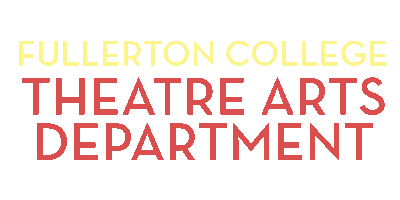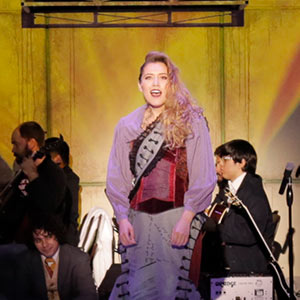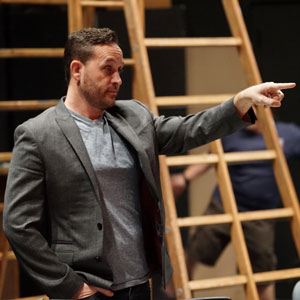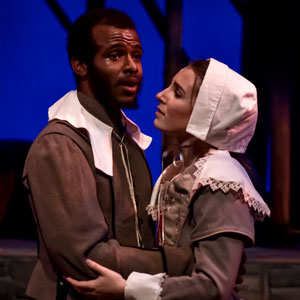Fullerton Takes a Stab at Welles' 'Moby Dick'
— Los Angles Times - Robert Koehler - Thursday, May 14th, 1998Orson Welles' 1955 play, "Moby Dick--Rehearsed," is little known. Even less known, perhaps, is Welles' repeated opinion in interviews later in life that this play "is my finest work--in any form."
That includes, amazingly, radio work such as "The War of the Worlds." That includes, even more astoundingly, "Citizen Kane."
Sill, over time, Welles' take on one of his few fully realized theater works simply doesn't hold water. Unlike "War's" radical use of radio drama to convince the listener of a nonexistent reality, or "Kane's" encyclopedic, unprecedented experimentation with narrative film language, "Moby Dick" is more a case of duly walking in the combined shadows of Bertolt Brecht and Herman Melville.
There are reasons why "Moby Dick--Rehearsed" is rarely done, and they're all on view in a fascinating, problematic revival at Fullerton College's Bronwyn Dodson Theatre.
We're presented with a theater company rehearsing "King Lear." (Welles imagined a late 19th century New England touring company; directors Robert Jensen and Dan Lemieux imagine a group at Fullerton College.) For reasons never made clear in the text, the company, under the helm of The Instructor (Lemieux), decides to approach "Lear" by way of a run-through of "Moby Dick."
The two works share the theme of how a leader's faulty decision-making (Lear dividing his land, Ahab blindly chasing the white whale) triggers tragedy. But it's a stretch to link them beyond that, and no sane director would expect his cast as an exercise to go from the challenge of "Lear" to the near-impossibility of playacting "Moby Dick" with bare props and miming.
Welles' play-within-a-play concept is merely imitative Brecht, and it makes no sense. Yet, as written, it's fairly easy to trim the "Lear" references and make this more sensibly and meaningfully a play about a humble acting troupe gamely putting on Melville's tale. Jensen and Lemieux, alas, keep all of Welles, good and bad.
Once we're into Ahab's adventure, a new set of problems occurs. Because Welles fairly faithfully preserved passages from Melville, it means a highly complex, poetical English (hardly less demanding than Shakespeare) that the Fullerton cast generally struggles with.
Novels into plays often don't work; the demands of the former aren't necessarily dramatic. The sprawling enormity of "Moby Dick" compounds these problems: On stage, characters frequently shift into static mode to utter Melville's philosophic passages. Complex language plus undramatic speechmaking is, in this case, a deadly formula.
What makes this "Moby Dick" intriguing and at times enthralling is the deliberate illusion in Jensen's design (with help from Salvatore Brezarich's high-contrast lighting) of the Pequod at sea: the ruffling of cloth to conjure rough waves, the swaying of huge ropes to nearly make us seasick, capped by the sinking of the ship in a stunning, simple effect. Welles' staging was reportedly brilliant in this department, and it's the reason to see the Fullerton revival.
Yet even here are problems. While it's terrific seeing college actors do non-naturalistic theater and explore mime and physical acting, Lemieux as Ahab stumbles wearing a real peg leg. He's so clearly physically strained by this bit of realism that it sucks the life out of his performance. Around him is very good work delivered by Bryan Guthrie as narrator Ishmael, Michael Hampton as a seaworthy Starbuck and an effectively mute Kat Scofield as Queequeg.
The pacing and bridges over Welles' patchy adaptation are enhanced by Bradley Enochs' score, like a weird marriage of Keith Emerson and Michael Nyman.








